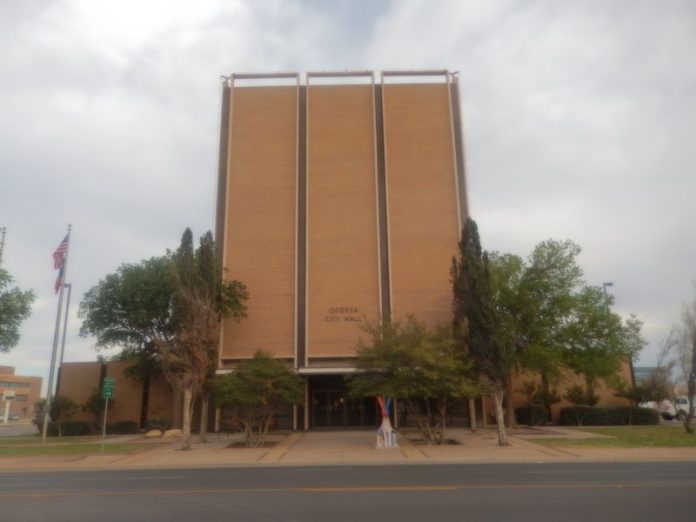The City of Odessa may be getting two new judges to oversee Municipal Court.
The council is scheduled to meet in executive session during its 3 p.m. work session Tuesday to discuss applications it received for the presiding judge and associate judge positions currently filled by Judge Carlos Rodriguez and Judge Keith Kidd.
Rodriguez and Kidd have been the subjects of a handful of executive session discussions in recent months. Their terms end at the end of the year.
The council is also expected to reappoint Mike Holmes and Steve Stein as alternative judges for two-year terms starting Jan. 1 at its regular 6 p.m. meeting. The council will also be discussing their salaries.
In related matters, City Manager John Beckmeyer will ask the council if he can purchase two payment kiosks for Municipal Court similar to those used in the Billing and Collections Department. The kiosks will cost roughly $75,000.
The council will talk about prioritizing road projects during its work session and providing that list to the Texas Department of Transportation for its 10-year Unified Transportation Program.
Staff has suggested Loop 338 interchange projects at US 385, 87th Street, 52nd/56th Streets and West 8th Street. In addition, they’ve suggested an interchange project at Faudree Road and Business Interstate 20.
Also during the work session, the council will discuss banning bars downtown, continue their discussion of allowing homeowners to build carports and receive an update on the Amy Bell Sports Complex.
Council members were told in September groundbreaking on the complex is expected to happen in January.
It’s slated to be a $70 million public-private project. It will be 140,000 square feet with 30 pickle ball courts, 20 volleyball courts, 10 hardwood courts, a portable 200-meter banked competition track, fitness centers, conference rooms, offices, a concession area, a cafe and a retailer.
In addition, outside there will be 12 fields for soccer, football and lacrosse and up to eight softball and baseball fields. There are also plans for athletic training and physical therapy.
It’s being built on 100 acres of land donated by the Bell family at the future intersection of Amy Bell Road and Faudree Road.
The City’s Public Information Coordinator Jennifer Reynier said that as of Nov. 9, there are no contracts/documents signed agreeing to invest or donate to the sports complex per the city secretaries, legal and finance departments.
It’s not the only sports complex going up in the area.
Midland Athletic Syndicate, a nonprofit, has plans to build a $35 million, 115,000 square foot facility at the Scharbauer Sports Complex off Loop 250 using non-profit and private donations.
The City of Midland will lease four acres of land to the nonprofit for 99 years for $1 a month and the facility will have six full-size basketball courts that can convert to 12 volleyball courts, an in-door soccer arena along with spectator seating, concession stand, locker rooms and meeting rooms.
Also on the council’s regular meeting agenda is the prospect of de-allocating roughly $6.4 million of the $10.1 million the city received in September 2021 as a result of the American Rescue Plan Act.
During a recent meeting, council members agreed they would rather spend the money on infrastructure needs rather than things like COVID testing, vaccinations, lost revenue, personal protective equipment and other services.
Under new rules, the city will be allowed to spend some of the funds to expand current roadway projects or cover additional costs of ongoing projects, Controller Matt McGee said. It can also use be used for Housing and Urban Development projects.
The city must designate how the money will be used by December 2024 and actually spend it by December 2026, McGee said. If the city fails to do so, it will have to reimburse the federal government.
In addition, the council will consider accepting more than $795,000 in grant money from Texas Health and Human Services and a $10,000 donation from Plains All American Pipeline.
According to documents provided to the council, the state grant is the result of the city’s ambulance costs exceeding the fee-for-service revenues received for a specific period of time.
The donation would be used to purchase everyday essential items, Chief Jason Cotton indicated in documents provided to the council.
During the council meeting, the council members will also talk about appropriating $175,533 received as part of an opioid settlement.




